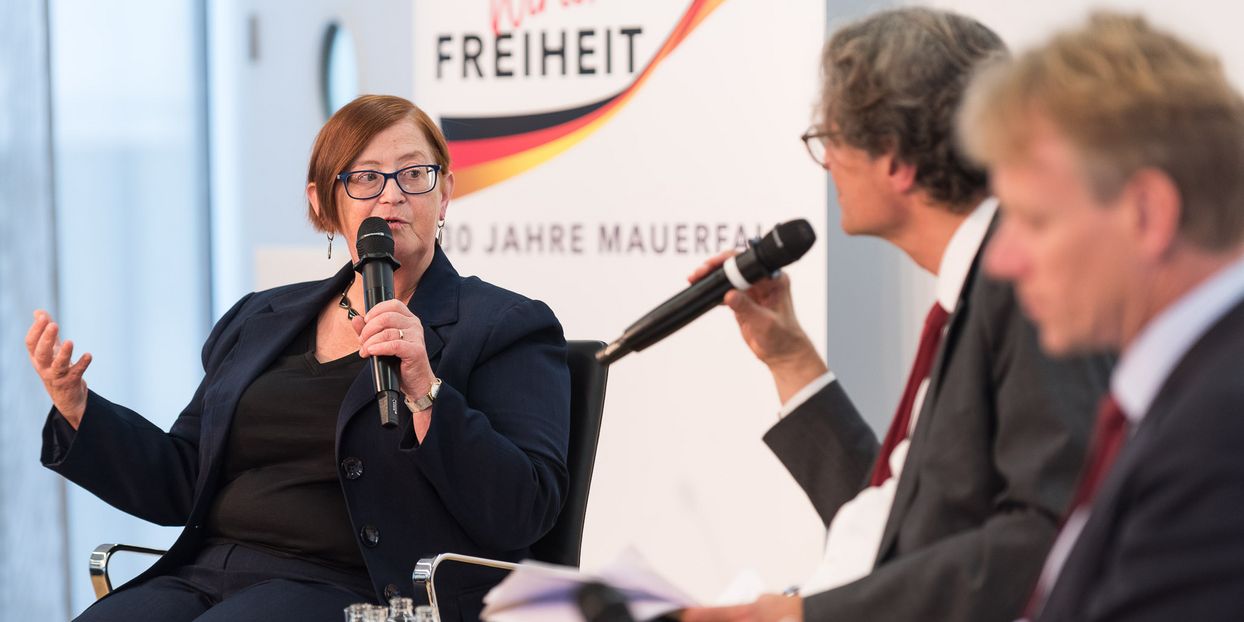
30 Jahre Mauerfall - Die Bedeutung des Mauerfalls für die Entwicklung Europäischer Gesellschaften
Crisis Talk on 1 October 2019
The 30th anniversary of the fall of the Berlin Wall is not only an opportunity to commemorate the peaceful revolution of 1989, but also an occasion to look at the long-term process of reunification.
The significance of the fall of the Berlin Wall for peace and democratic freedom in Europe should not be underestimated, as Mark Weinmeister (Hessian State Secretary for European Affairs) noted in his welcoming address at the Hessian state representation. At the same time, the reunification represents a challenge - politically, economically and socially - whose dimension can only be truly appreciated in retrospect and which, even today, still has crisis-like features.
The 12th Crisis Talk was therefore dedicated to the long-term challenges of reunification and discussed them against a European horizon. Prof. Dr. Frank Bösch (Zentrum Zeithistorische Forschung, Potsdam) in his keynote address provided a historical perspective that revealed the complexity of reunification and, above all, identified a lack of recognition and appreciation of the life achievements of East Germans as a problem. Prof. Dr. Ruth Leiserowitz (Humboldt University and German Historical Institute Warsaw) supplemented this in the discussion not only with a perspective on the developments in Eastern Europe and especially in Poland. She also provided an impressive insight into her own professional biography, which is inseparably linked to the history of the GDR and the fall of the Wall.
The Crisis Talk, jointly organized by the Representation of the State of Hesse to the EU, the Leibniz Research Network "Crises of a Globalized World", the European Office of the Leibniz Association and the Cluster of Excellence "Normative Orders" at Goethe University, honored the historical success of the fall of the Wall and at the same time stimulated reflection on the ongoing process of unification.
